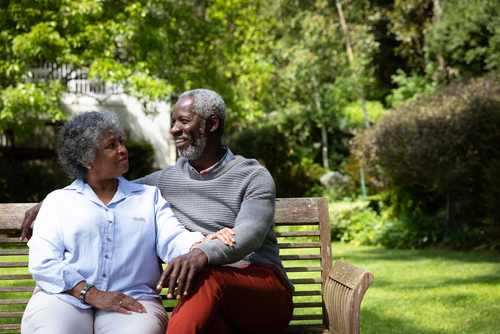Choosing Between Spouse and Elderly Parent
Category:

Choosing Between Spouse and Elderly Parent
As the circle of life unfolds, many adult children find themselves caring for an elderly parent. In some cases, that means taking care of little things, such as picking up groceries, taking them to the doctor, or helping with finances.
But what if a parent requires more than help with day-to-day tasks? If a parent is unable to live alone because of medical problems or needs constant oversight due to dementia or Alzheimer’s Disease, life can get complicated.
Many elderly people need help with the activities of daily living as they age.
Bathing, dressing, toileting, meal preparation and medication administration are some of the things a family caregiver becomes responsible for if they are providing care for an aging or declining parent.
Balancing the demands of a marriage while caring for aging parents is not easy. The adult child feels an obligation to take care of the parents who were always there for them, but elder care and marriage don’t always go hand in hand. Marriage and caring for aging parents often leads to serious problems between a husband and wife, even if they thought they could manage.
By the time parents are old or fragile enough to need help, their adult children are usually in their late 40’s or older. Those years are the most stressful years for most people. Middle age is the time to focus on demanding careers, college age kids, young grandchildren, social lives, traveling, and planning for retirement.
If the married couple’s plans are side-tracked by a needy aging parent, spouses may feel the elderly in law is ruining the marriage, which causes resentment to set in quickly. Choosing between a spouse and an elderly parent is not a position anyone wants to be in.
I’m sure you’ve heard stories from friends or family members about how caring for an elderly in law ruined a marriage. Maybe the mother-in-law was demanding and bitter and had no respect for her adult child’s spouse. Or the father-in law had medical conditions that required around the clock care, leaving no time for the caregivers to nurture or enjoy their own life. When a parent suffers from Alzheimer’s or dementia, the household can quickly become disrupted and chaotic.
So, how can we make these two conflicting stages of life work harmoniously, or at least tolerably? The most important thing to do prior to making the commitment to be a caregiver is to have a game plan. Having a family meeting to discuss potential problems can help eliminate friction in the marriage when they occur.
Download Our Sandwich Generation Guide
Here are a few items to consider as you make your plans:
- Listen to your spouse’s concerns, and make sure he/she is comfortable before proceeding with the commitment to caregiving.
- Have a family meeting, including your elderly parent and all family members who might be able to help.
- Talk about money. How much income does your elderly parent have, and how will it be used to help offset additional expenses in the household?
- Who will make decisions?
- Do you need to set up a Power of Attorney?
- What about boundaries? Make sure they are clearly understood by everyone in the home. Allow for privacy for your parent and time for yourselves as a couple.
- Ask other family members if they are willing to fill in when you need a break or time away.
- Talk things over with your spouse before decisions are made.
- Let go of old grudges and resentment. These are new circumstances. Starting fresh is the best way to be successful.
- Have fun! Assuming responsibility for the care of an elderly parent involves both challenges and rewards. Focus on the rewards of helping your parent when they need you and enjoy the time you have together.
Remember the Walton’s? They were able to make things work in a multi-generational family despite the challenges they frequently faced. Think positively, stay in tune with your spouse, and take a break when you need it.
Check out our website at Griswold Home Care. We can help you access the help you need to make caring for your loved one a workable and fulfilling experience, while preserving your relationship with your spouse and family.
Subscribe
Date: May 4, 2021
Category:


